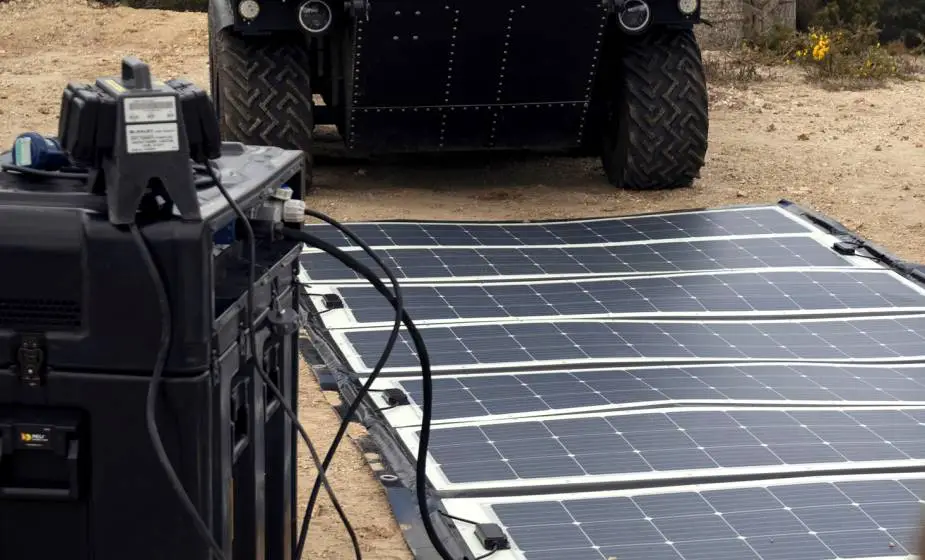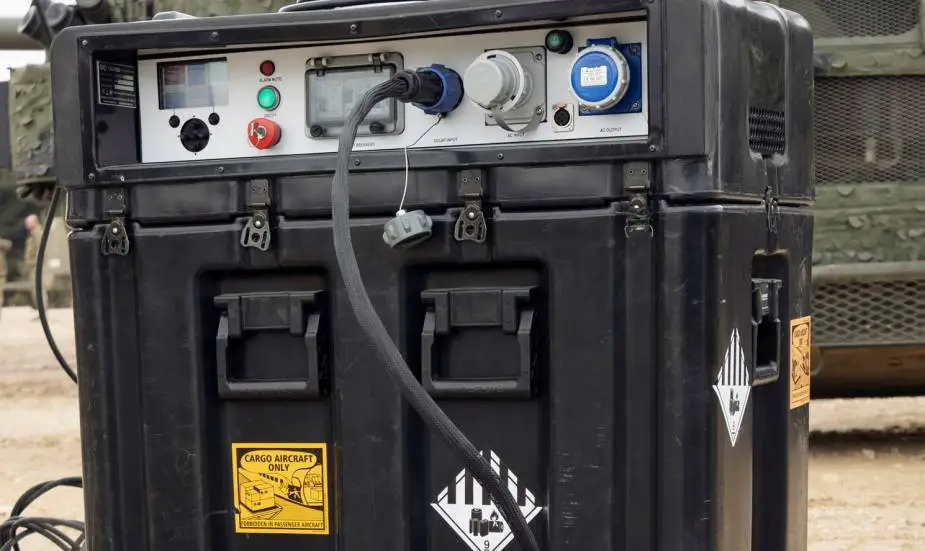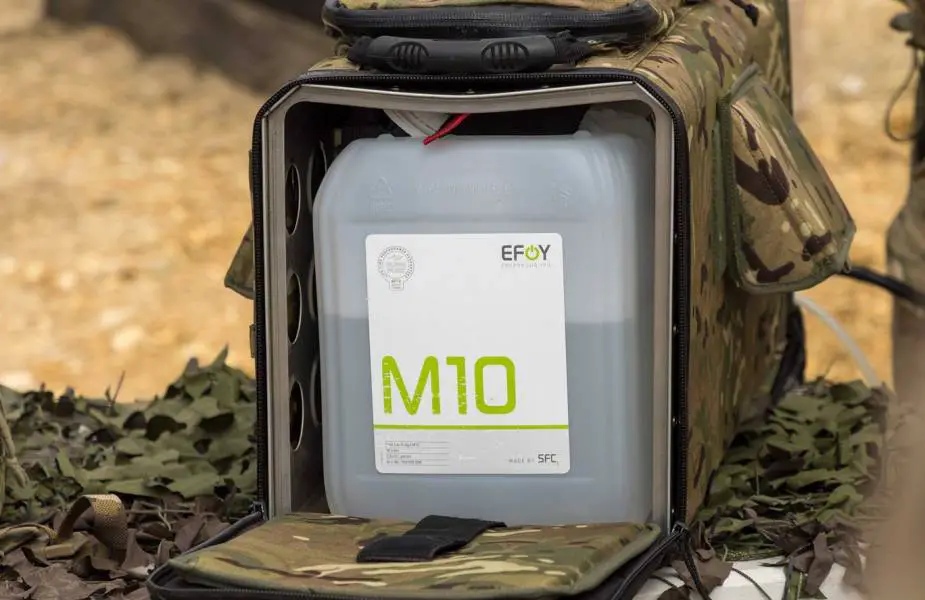The British Army is testing a sustainable power bank that will help soldiers operate in remote areas where access to power is limited or non-existent. The British MoD reports on its website.
Follow Army Recognition on Google News at this link

Captain Alex Rudd of the Light Dragoons in Mali said: “The power bank runs with no noise emissions, reduces the risk of detection and provides safety and security to deployed troops. Most importantly, its simple setup procedure enables troops to quickly get it up and running.” (Picture source: British MoD)
Various green expeditionary power solutions are currently being put through their paces by long-range patrol units in Mali on Operation Newcombe. These patrols, which have been protecting local communities and deterring terrorist activity, need portable power banks due to the vast areas they cover, up to 1,500km, the unreliability of static power sources and the need to retain a low profile.
Finding a renewable source of energy means less fuel to be carried, less impact on the local community and the environment as well improved capability through reliable low-profile power, without heat or noise emissions.
Some of the power banks used are methanol generators or Lithium-Ion batteries paired with solar panels, which are ideal for supplementing power for a patrol base. In combination, they can be deployed by two people in under a minute and can power a headquarters, including communications equipment, on a tiny portion of fuel almost indefinitely. The green power banks have been tested in temperatures up to 50°C.
Captain Alex Rudd of the Light Dragoons in Mali said: “This new power bank allows us to be more self-sufficient on the ground. It provides a lighter and more fuel-efficient power option. As well as lasting longer than more conventional fuels that we have used in the past, it provides a tactical advantage. This is because platforms no longer need to be started to maintain a constant power source. “The power bank runs with no noise emissions, reduces the risk of detection and provides safety and security to deployed troops. Most importantly, its simple setup procedure enables troops to quickly get it up and running.”
As well as providing British troops on the ground with greater range and efficiency, the Army’s Armoured Trials & Development Unit (ATDU) has been investigating how to source power without creating problems for local communities.
The Army has previously relied on diesel to power vehicles and equipment. But this has created noise and air pollution as well as the risk of oil spills. Renewable energy solutions, such as the exportable ‘off the grid’ power bank solutions now being trialled, significantly reduce these unwanted impacts on local populations and showcase UK renewable tech in a high-profile operation.

Before being rolled out to help soldiers operate in the challenging West African terrain on Operation Newcombe, the power banks were tested by troops at the Army’s Bovington training camp in Dorset. (Picture source: British MoD)
ATDU has taken various solutions to the power problem, direct from industry, which are now being tested by soldiers on operations. The power banks, which are currently at the prototyping stage, are not under commercial contract but are helping the Army to develop the concept both at home and overseas.
Before being rolled out to help soldiers operate in the challenging West African terrain on Operation Newcombe, the power banks were tested by troops at the Army’s Bovington training camp in Dorset.
Defence is committed to enabling industry investment in military capability and collaborating with industry expertise. ATDU is, therefore, working with industry on this power bank project and is keen to bring in more industry expertise to assist their ongoing work which focuses on renewable energy and electrification of the battlefield.
This long-term sustainable project is part of the Ministry of Defence’s green agenda with the Army aiming to reach net-zero emissions by 2050. Defence acts and is recognised as a global leader in response to the emerging geopolitical and conflict-related threats that are exacerbated by climate change.
The UK commitment to Mali demonstrates the kind of deployments that will increase in line with Future Soldier, the Army’s transformation plan. The Army will not just train in case of war but will be continuously working to keep the country safe. Having more regularly deployed troops – ‘persistent presence’ – gives the ability to anticipate and react quicker to emerging crises.

This long-term sustainable project is part of the Ministry of Defence’s green agenda with the Army aiming to reach net-zero emissions by 2050. (Picture source: British MoD)














